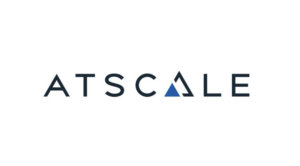
AtScale Launches SML to Standardize Semantic Modeling and Foster Collaboration

(Summit-Art-Creations/Shutterstock)
AtScale, a leader in data analytics acceleration, has announced the open-source release of its Semantic Modeling Language (SML). This move aims to enhance semantic model portability and foster a vibrant community of model builders.
By standardizing on a single modeling language, AtScale envisions the development of a comprehensive library of shareable semantic models. This standardization will facilitate the easier transfer of these models between different platforms.
With the SML, a wide range of existing schemas, including those from SaaS applications and industry-specific ontologies, can be quickly accessed and utilized. This also simplifies the creation and integration of semantic models, enhancing compatibility with different systems and tools.
The launch of SML represents a significant milestone in the company’s decade-long effort to make data analytics more accessible and advance semantic layer technology.
Founded in 2013, AtScale has been a leader in semantic layer innovation and is recognized as one of the pioneers in this field. It began by developing a platform that connects BI tools with big data sources. Over time, AtScale broadened its integrations and expanded its capabilities to support a wider range of data environments.
“We realized early on the need for a business-friendly view on top of technical data so that ordinary business users could ask questions about data using familiar business terminology,” said David Mariani, CTO & Co-founder of AtScale.
“To achieve that goal, we needed to free the semantic layers embedded within analytics tools and data platforms and create an independent, universal semantic layer for any tool or data platform.”
According to AtScale, SML is built using decades of hands-on experience in solving use cases for a variety of customers across industries. This allows it to have the versatility to cater to a wide range of applications.
SML supports complex data structures, including metrics, dimensions, hierarchies, and many-to-many relationships. Built on YAML, the SML specification accommodates both tabular and multidimensional constructs, enabling efficient data modeling. Additionally, SML is compatible with Git and CI/CD practices and is extensible to support additional properties and features.
 The developers have made SML publicly available. Several components of the SML will be kept open source including the YAML-based Language Specification and pre-built semantic models. Helper classes and semantic translators are also in development and are expected to be released soon.
The developers have made SML publicly available. Several components of the SML will be kept open source including the YAML-based Language Specification and pre-built semantic models. Helper classes and semantic translators are also in development and are expected to be released soon.
Through the introduction of SML, AtScale hopes to promote the adoption of semantic layer platforms and simplify customer migrations between proprietary vendor solutions.
“In addition, by coalescing around a single semantic modeling standard, we encourage others to author and share semantic models for various applications and industry ontologies,” stated AtScale via a blog. “With a standard way of expressing business logic, we aim to promote accelerated analytics consumption and interoperability to bring data and analytics to more people.”
The growing complexity of big data environments and the increasing need for unified, consistent data access and analytics across diverse systems have driven the boom in semantic layer platforms. This growth has resulted in a proliferation of vendors in the space. Universal semantics is emerging as a critical area of competition in the big data landscape.
San Francisco-based startup, Cube has emerged as a major competitor to AtScale. With its outstanding flexibility and open-source capabilities, Cube claims that its platform is the only truly open-source semantic layer. The startup has surpassed 10 million downloads on over 90,000 servers.
The rise of semantic layer platforms underscores the need for more efficient data management solutions. AtScale, Cube, and other innovative companies each offer distinct strengths, addressing different facets of data analytics and management.
Related Items
Why a Universal Semantic Layer is the Key to Unlock Value from Your Data
AtScale Announces Major Upgrade To Its Semantic Layer Platform
Cube Secures $25M to Advance Its Semantic Layer Platform
[wpsr_share_icons icons="twitter,facebook,linkedin,reddit,email" icon_size="40px" icon_bg_color="" icon_shape="circle" hover_effect="opacity" sm_screen_width="768" lg_screen_action="show" sm_screen_action="show" page_url="https://www.bigdatawire.com/2024/09/13/atscale-launches-sml-to-standardize-semantic-modeling-and-foster-collaboration/" page_title="AtScale Launches SML to Standardize Semantic Modeling and Foster Collaboration" page_excerpt="
AtScale, a leader in data analytics acceleration, has announced the open-source release of its Semantic Modeling Language (SML). This move aims to enhance semantic model portability and foster a vibrant community of model builders. Read more…
" share_counter=""]


























